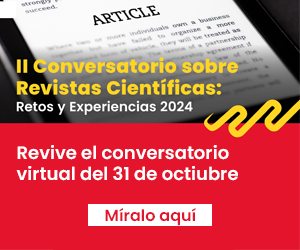Modificaciones de la conducta alimentaria, actividad física y salud mental por la cuarentena COVID-19 en adultos jóvenes
DOI:
https://doi.org/10.20453/rmh.v33i1.4164Palabras clave:
Infeccionesporcoronavirus, cuarentena, conductaalimentaria, actividadmotora, saludmentalResumen
En Perú, una de las primeras medidas preventivas para allanar la curva epidemiológica de la pandemia COVID-19 fue la cuarentena, que cambió de forma importante la conducta alimentaria, la actividad física y la salud mental. Objetivo: Determinar las modificaciones de la conducta alimentaria, actividad física y salud mental antes y durante la cuarentena por la pandemia COVID-19 en adultos jóvenes. Material y métodos: Estudio observacional, descriptivo, longitudinal en 384 adultos entre 18 y 24 años, mediante una encuesta virtual que incluyó: Cuestionario de frecuencia de consumo de alimentos, Cuestionario Internacional de Actividad física y Cuestionario de cambios en la salud mental, analizados mediante ji – cuadrado. Resultados: Durante la cuarentena se encontró un incremento en la distribución de frecuencia de comidas diarias [desayuno (p < 0,001), media mañana (p < 0,05), almuerzo (p< 0,001), merienda (p<0,001), cena (p < 0,05)] y de las preferencias alimentarias, con aumento en el consumo de frutas (p = 0,005) y una disminución de comidas rápidas (p < 0,05) y golosinas (p = 0,03). El nivel de actividad física bajo fue más frecuente (Varones: 28,4%; Mujeres: 25,3%) y hubo una disminución en las horas de sueño, por otro lado, la salud mental se vio severamente afectada durante la cuarentena. Conclusiones: Los resultados indican que la cuarentena ha producido variaciones en la conducta alimentaria, una disminución de la actividad física y un aumento de problemas de salud mental. Estas modificaciones representan un riesgo de sobrepeso u obesidad, incluso, desarrollo de enfermedades no transmisibles.
Descargas
Citas
World Health Organization. Coronavirus disease 2019 (COVID -19) Situation Report – 68. Ginebra: World Health Organization; 2021. (Citado 10 de febrero del 2021). Disponible en: https://www. who.int/emergencies/diseases/novel-coronavirus- 2019/situation-reports
Cascella M, Rajnik M, Cuomo A, Dulebohn S, Di Napoli R. Features, Evaluation and Treatment Coronavirus (COVID-19). StatPearls Publishing; 2020. (Citado 10 de febrero del 2021). Disponible en: https://www.ncbi.nlm.nih.gov/books/NBK554776/
Sedano F, Rojas C, Vela J. COVID-19 desde la perspectiva de la prevención primaria. Rev Fac Med Hum. 2020; 20(3): 494-501.
Khan M, Moveley J. “Covibesity”: a new pandemic. Obes Med. 2020; 19:(100282). Doi: 10.1016/j. obmed.2020.100282
Peña E, Reidl L. Las Emociones y la Conducta Alimentaria. Acta de investigación psicol. 2015; 5(3):2182 - 2193.
Buckland N, Swinnerton L, Ng K, Price M, Wilkinson L, Myers A, et al. Susceptibility to increased high energy dense sweet and savoury food intake in response to the COVID-19 lockdown: The role of craving control and acceptance coping strategies. Appetite. 2021; 158: 105017. Doi: 10.1016/j. appet.2020.105017
Robinson E, Boyland E, Chisholm A, et al. Obesity, eating behavior and physical activity during COVID-19 lockdown: A study of UK adults. Appetite. 2020; 156:104853. Doi: 10.1016/j.appet.2020.104853
Sidor A, Rzymski P. Dietary choices and habits during COVID-19 lockdown: Experience from Poland. Nutrients. 2020; 12(6):1-13. Doi: 10.3390/ nu12061657
Renzo L, Gualtieri P, Cinelli G, et al. Psychological Aspects and Eating Habits during COVID-19 Home Confinement: Results of EHLC-COVID-19 Italian Online Survey. Nutrients. 2020; 12(7): 1-14.
Husain W, Ashkanani F. Does COVID-19 change dietary habits and lifestyle behaviours in Kuwait: a community-based cross-sectional study. Environ Health Prev Med. 2020; 25:61. Doi: 10.1186/s12199- 020-00901-5
Reyes D, Latorre P, Guzmán I, Jerez D, Caamaño F, Delgado P. Positive and Negative Changes in food Habits, physical Activity Patterns, and weight status during COVID-19 Confinement: Associated Factors in the Chilean Population. Int J Environ Res Public Health. 2020; 17(15): 1 – 14.
Celis C, Salas C, Yáñez A, Castillo M. Inactividad física y sedentarismo. La otra cara de los efectos secundarios de la Pandemia de COVID-19. Rev Med Chil. 2020; 148(6): 885-886.
Argimon J, Jiménez J. Métodos de investigación clínica y epidemiológica. Barcelona: Elsevier; 2013.
Reyes Ó, García M, Béjar L. Valoración de la ingesta dietética mediante la aplicación e-EPIDEMIOLOGÍA: comparación con un cuestionario de frecuencia de consumo de alimentos en una muestra de trabajadores. Rev Asoc Esp Espec Med Trab. 2017; 26(4): 228- 237.
Junta de Andalucía-Consejería de Salud. Cuestionario Internacional de Actividad Física (IPAQ): Andalucía: Junta de Andalucía-Consejería de Salud; 2020. (Citado el 18 de febrero del 2021). Disponible en: https://www.juntadeandalucia.es/ export/drupaljda/salud_5af95872aeaa7_ cuestionario_actividad_fisica_ipaq.pdf
Pérez C, Citores M, Bárbara G, et al. Changes in eating habits during lockdown period due to the COVID – 19 pandemic in Spain. Rev Esp Nutr Comunitaria. 2020; 26 (2): 101 – 111.
Sudría M, Andreatta M, Defagó M. Los efectos de la cuarentena por coronavirus (COVID-19) en los hábitos alimentarios en Argentina. DIAETA. 2020; 38(172):10-19.
Velásquez V. Consumo de alimentos y bebidas ultra procesados en adultos durante el período de cuarentena por la pandemia de COVID-19, Lima - 2020.Tesis para optar título de Licenciado en
utrición. Lima: Universidad César Vallejo; 2020. pp.80.
Amini H, Isanejad A, Chamani N, et al. Physical activity during COVID – 19 pandemic in the Iranian population: A brief report. Heliyon. 2020; 6 (11): e05411. Doi: j.heliyon.2020.e05411
Meyer J, McDowell C, Lansing J, et al. Changes in Physical Activity and Sedentary Behavior in Response to COVID-19 and Their Associations with Mental Health in 3052 US Adults. Int J Environ Res Public Health. 2020; 17(18):6469. Doi: 10.3390/ijerph 17186469
Savage M, James R, Magistro D, et al. Mental health and movement behaviour during the COVID-19 pandemic in UK university students: Prospective cohort study. Ment. Health Phys. Act. 2020; 19(100357):0-0. Disponible en: 10.1016/j. mhpa.2020.100357
Dunton G, Wang S, Do B, Courtney J. Early effects of the COVID-19 pandemic on physical activity locations and behaviors in adults living in the United States. Prev Med Rep. 2020; 20(101241):0-0. Doi: j.heliyon.2020.e05411
Bravo S, Núnez R, Sánchez C, Kosakowski H, Azcarrus J. La actividad física en el contexto de aislamiento social por COVID19. Rev GIOS. 2020; 5(2): 6-22.
Organización Mundial de la Salud. Actividad física. Ginebra: Organización Mundial de la Salud; 26 Nov 2020. (Citado el 18 de febrero del 2021). Disponible en: https://www.who.int/es/news-room/fact-sheets/ detail/physical-activity#
Brailovskaia J, Cosci F, Mansueto G, et al. The association between depression symptoms, psychological burden caused by Covid-19 and physical activity: An investigation in Germany, Italy, Russia, and Spain. Psychiatry Res. 2021; 295(113596). Doi: 10.1016/j.psychres.2020.113596
Ma Z, Zhao J, Li Y, et al. Mental health problems and correlates among 746 217 college students during the coronavirus disease 2019 outbreak in China. Epidemiol Psychiatr Sci. 2020; 29(e181):0-0. Doi: 10.1017/S20457969022000931
Zhai Y, Du X. Abordar la salud mental universitaria en medio de la pandemia de COVID-19. Psiquiatría Res. 2020; 288: 113003. DOI: 10.1016/j. psychres.2020.113003
Son C, Hegde S, Smith A, Wang X, Sasangohar F. Effects of COVID-19 on College Students’ Mental Health in the United States: Interview Survey Study. J Med Internet Res. 2020; 22(9):0-0. Doi: 10.2196/21279
Descargas
Publicado
Cómo citar
Número
Sección
Licencia
Los autores ceden sus derechos a la RMH para que esta divulgue el artículo a través de los medios que disponga. Los autores mantienen el derecho a compartir, copiar, distribuir, ejecutar y comunicar públicamente su artículo, o parte de él, mencionando la publicación original en la revista.

















